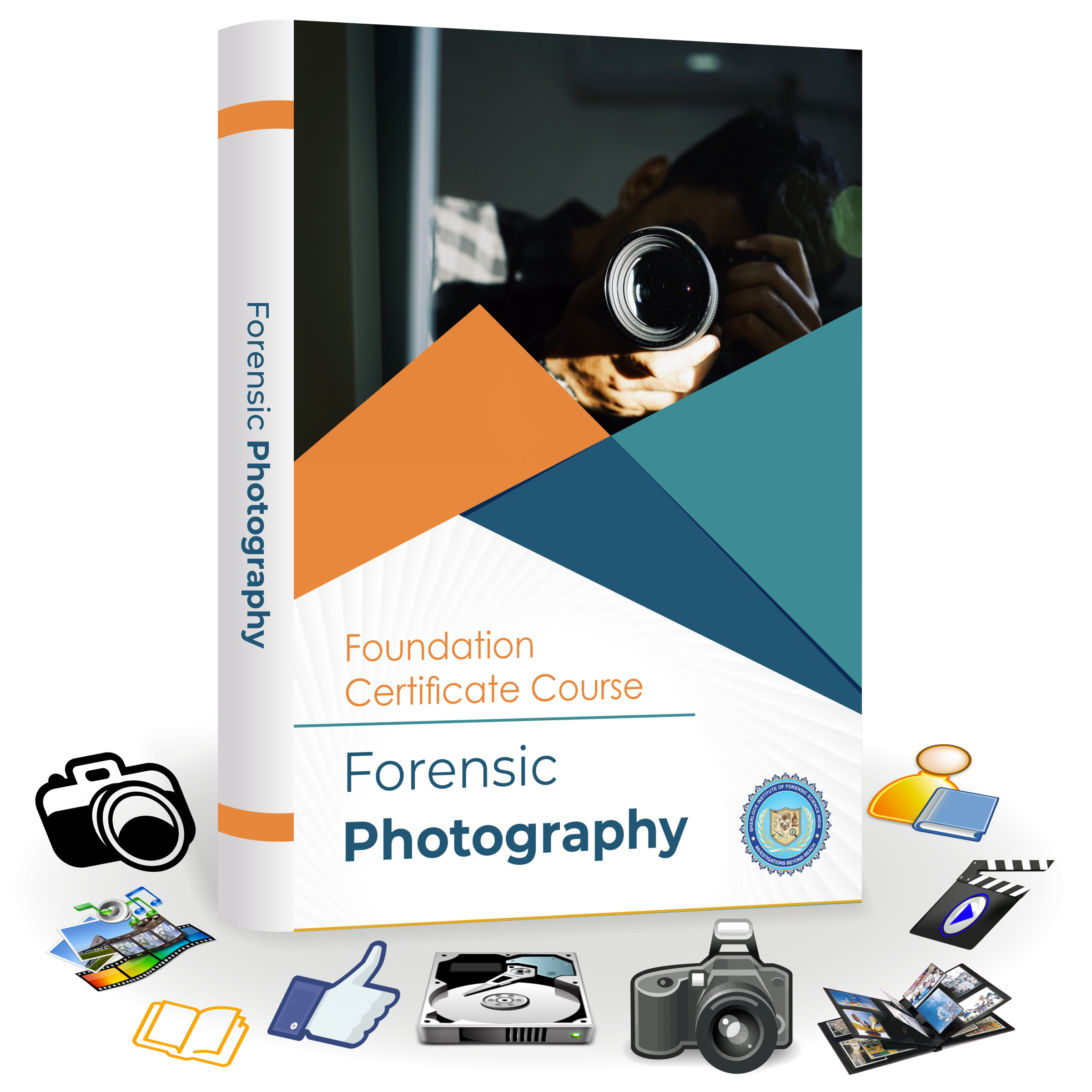The instructors were incredibly supportive, approachable, and professional. The overall experience with the basic forensic photography course was excellent.

Certification
Foundation Course Certificate
Mode of Study
100% Online Start now and learn from anywhere
Learning Hours
15 hours of Video Sessions
Learning Medium
English
Learn Forensic at Your Own Pace, Master at Your Own Time!
Unlock Your Potential with Self-Paced Learning!
Learn Anytime, Anywhere
No schedules, no pressure! Study at your convenience
Go at Your Own Speed
Master concepts without rushing or slowing down
Full Access to Course Materials
Revisit lessons whenever you need
Expert-Led Content
Gain industry-relevant skills from top instructors
Perfect for Professionals & Students
Balance learning with your lifestyle
Affordable & Cost-Effective
No travel, no extra expenses, just pure learning!
Earn a Recognized Certification
Boost your resume and career prospects
Join Thousands of Successful Learners Today!
Enroll Now & Take Control of Your Learning Journey!
Forensic photography is an essential skill for preserving and documenting crime scene evidence, providing crucial support for law enforcement in investigations. The online Forensic Photography Foundation Certificate Course by the Sherlock Institute of Forensic Science will provide you with the knowledge needed to capture and analyze crime scenes through the lens, turning photographs into vital pieces of evidence in solving crimes.
This pre-recorded course is taught by expert forensic photographers, and combines theoretical lessons with real-life case studies. You will learn about the history and techniques of forensic photography, camera handling, types of cameras used in the field, methods to document crime scenes, techniques to photograph evidence, including accidental, aerial, surveillance, and underwater photography, photogrammetry, and the legal aspects of crime scene documentation.
This certified course will open doors for you to pursue a career in forensic photography, law enforcement, or related fields. You will gain the knowledge and skills to capture crucial evidence and make a significant impact in criminal investigations. Join us to unlock the power of forensic photography and contribute to solving complex cases.
Become Proficient to Answer:
- What is the role of forensic photography in documenting crime scenes and evidence?
- In what way can photographs be used to preserve crime scenes that can be used in legal proceedings?
- How can evidence be well and accurately captured on the camera?
- What effects does lighting have when taking photographs of crime scenes?
- What is important to know in order to photograph trace evidence and injuries?
- How should scale and perspective be maintained in forensic photography?
- Which types of equipment and tools should be used while taking photographs at the crime scenes?
- What exactly does a forensic photographer do to the photographs taken, and how do they maintain them?
- What problems are met when photographing challenging crime scenes such as fire or low light?
- How is forensic photography applied during autopsy and lab analysis?
- In what ways can photos enhance courtroom exhibits as well as legal cases?
- What are the ethical considerations when documenting crime scenes and evidence?
Learning Outcomes:
Forensic Photography Fundamentals: This course will equip you with an understanding of the principles of capturing high-quality, legally admissible photographic evidence from crime scenes.
Crime Scene Documentation: You will learn how to document crime scenes using photography, ensuring the integrity and preservation of evidence.
Laboratory Evidence Photography: You will acquire skills to photograph forensic evidence in the lab using proper lighting, angles, and scales for accurate representation.
Image Enhancement for Forensic Purposes: You will learn techniques to enhance the quality of photographs to bring out crucial details for investigative use.
Ethics and Legalities in Forensic Photography: You will understand the ethical and legal responsibilities of a forensic photographer in terms of evidence handling and courtroom testimony.
Course Details:
Fee | National: 1770 INR (1500 INR + 18% GST) International: 50 USD |
Duration | 1 Month |
Eligibility | 12th Passed |
Session Timing | Learn at your own Pace |
Payment Details:
International Student : PayPal: forensicdocument@gmail.com
Account Details for National Student
Bank Name - ICICI BANK
Acc. Name - SIFS INDIA PVT. LTD.
Account No. - 663505500086
Type - Current
IFSC Code - ICIC0000160
Address - ICICI Bank, H-4, Model Town -III, New Delhi - 110009


